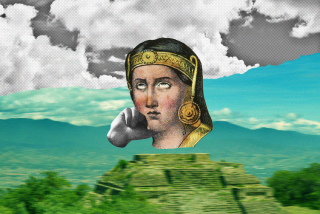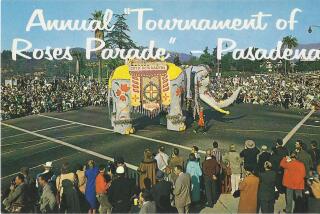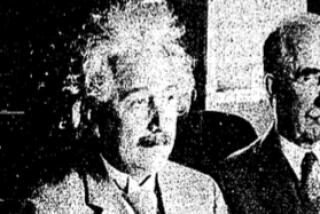Parade Names Co-Marshal
- Share via
All the furor over Columbus, and about the quincentennial celebration of his first voyage to this hemisphere, is not about a 500-year-old event. It is about events in today’s world.
The backlash of protest by American Indian groups is clearly political. Perhaps less obvious, however, are the political motives of the other side. Nevertheless, the people who want to characterize the arrival of Europeans here as merely a “discovery,” or as “the meeting of two cultures,” also have a present-day political agenda.
Presenting Columbus as a benign explorer, who wanted to prove that the world was round, is not merely an effort to make us proud of our past. Redefining history in that way has an effect on how we understand our world and live today. For instance, if we have confidence in past leaders, if we look at history as their story, we will tend to look to leaders of the present for solutions. The present would be our leaders’ story, not ours.
If we misconstrue events in the past, how can we understand, or even correctly identify, significant current events? Ultimately, propaganda has the same purpose whether it is about something that happened five centuries ago, five years ago or five minutes ago.
KESHAV KAMATH
Santa Monica
More to Read
Sign up for The Wild
We’ll help you find the best places to hike, bike and run, as well as the perfect silent spots for meditation and yoga.
You may occasionally receive promotional content from the Los Angeles Times.






